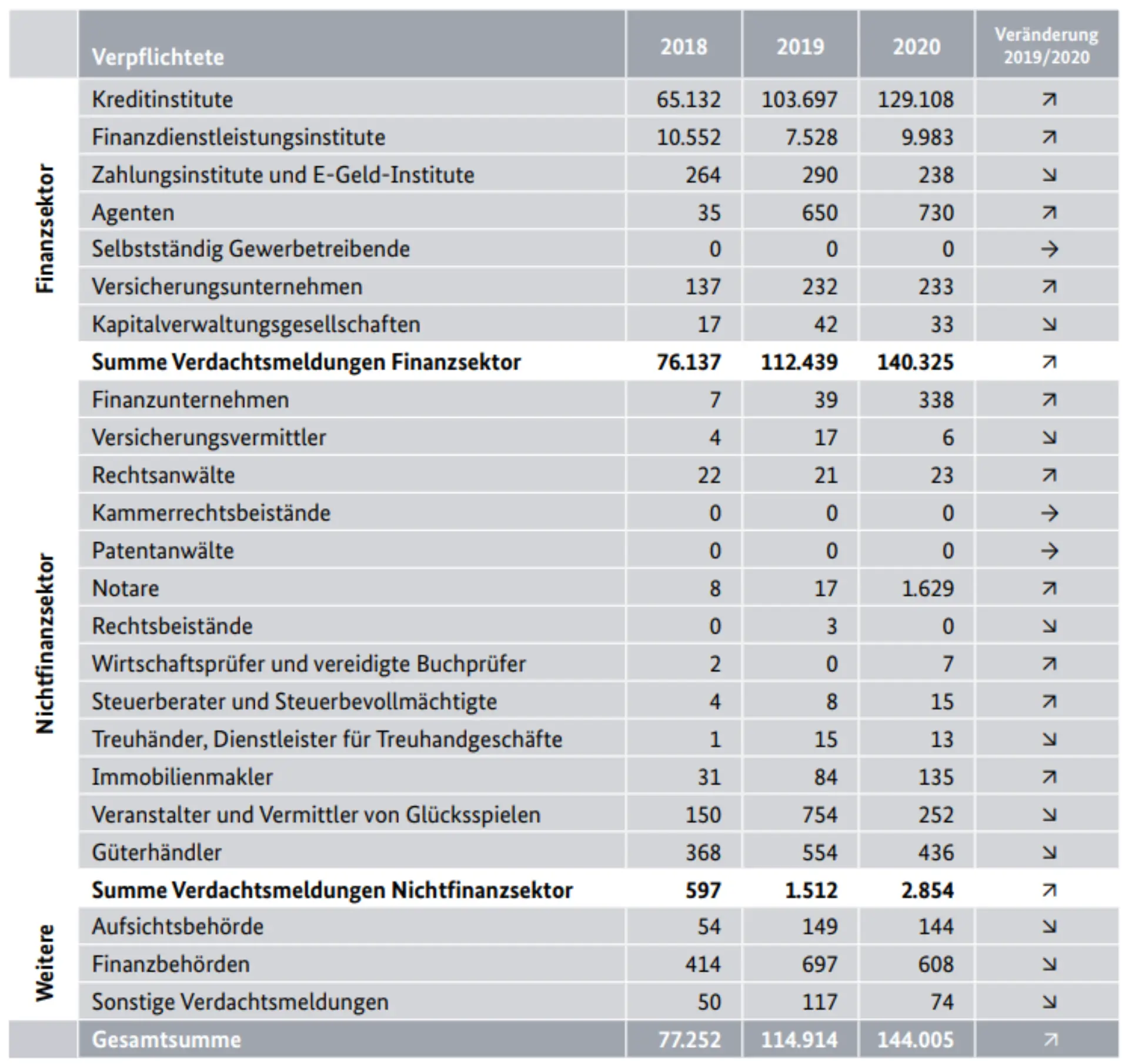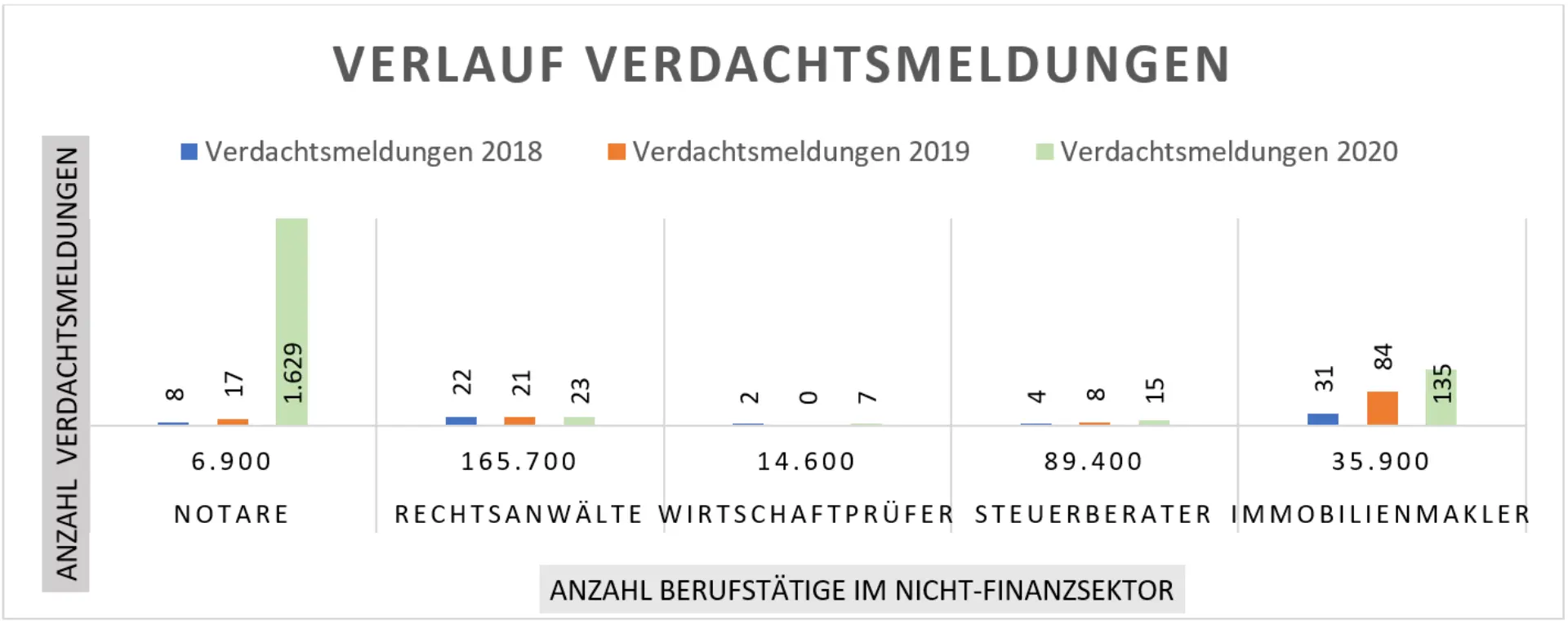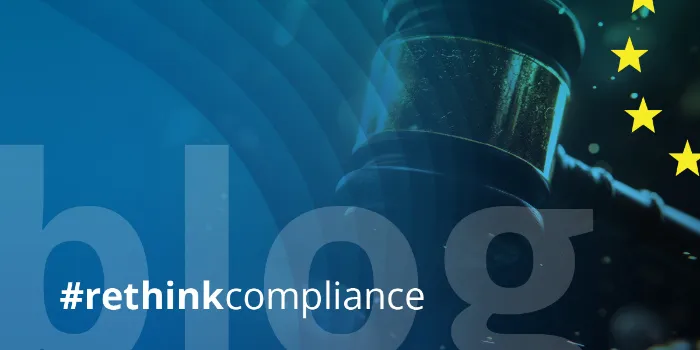

FIU Annual Report 2020 – Financial Crime on the Rise? (Part 1)
#rethinkcompliance Blog | Post from 27.09.2021
On August 19, 2021, the Central Customs Authority published the Financial Intelligence Unit (FIU) Annual Report for the reporting year 2020, which aims to provide information on which economic sectors in Germany are particularly under the influence of (financial) criminal activities.
From the perspective of msg Rethink Compliance, the following topics play a special role in the annual report:
- Obligation of additional professional groups (DNFBPs - Designated Non-Financial Businesses and Professions)
- Trade-based money laundering
- Hawala banking
- COVID-19
- International cooperation
- Other observations
In our #rethinkcompliance blog, we will take a closer look at these topics in six parts. In today's blog, we first refer to the obligation of additional professional groups.
Obligation of Additional Professional Groups
Following the first National Risk Analysis 2018/2019, which certified a high money laundering risk for the German real estate sector, the German Regulation GwGMeldV-Immobilien came into force on October 1, 2020. In addition to the real estate sector, it also obliges legal advisory professions, such as notaries, lawyers, auditors and tax consultants, to submit suspicious activity reports to the FIU.
Source: Bundesfinanzministerium - Verordnung zu den nach dem Geldwäschegesetz meldepflichtigen Sachverhalten im Immobilienbereich
As a consequence, it is not surprising that the number of suspicious activity reports from this circle has increased by leaps and bounds, especially among the professional group of notaries.
While there had been an increase of over 100% when comparing 2018 to 2019 (note: 8 SARs were submitted in 2018, and a total of 17 in 2019), there were a total of 1,629 reports to the FIU in 2020. It will therefore be interesting to observe whether this trend will continue in the following years and then remain at a high level.

Figure 1: Number of SARs by obligor group (Source: FIU Annual Report 2020)
The topic of money laundering is not entirely new for notaries. The Federal Ministry of Justice already drew attention to this in 2004. The publicly accessible study about the vulnerability of lawyers, tax consultants, notaries and auditors through money laundering („Gefährdung von Rechtsanwälten, Steuerberatern, Notaren und Wirtschaftsprüfern durch Geldwäsche“) aimed at sensitising this professional group to the issue by means of specific cases. However, it first required a legal regulation to ensure that notaries also need to submit suspicious activity reports to the FIU from now on. For example, a report must be made if contracting parties come from risk countries or if the overall circumstances of the purchase price settlement do not appear conclusive. This is the case, among others, if there is a blatant disproportion between the purchase price and the known assets of the clients. With regards to the definition of a risk state, there is certainly still a need for clarification. To refer only to the list of the EU Delegated Regulation and to the list of countries published by the FATF seems to fall short. For example, the countries used by the so-called "Russian Laundromat" for its financial activities have not yet been recorded here.
It would be extremely helpful for those obliged under the German Money Laundering Act to know in which cases, for example, the professional group of notaries has submitted suspicious activity reports to the FIU. This should give obliged parties an indication of the typologies with which the banking industry must deal in connection with real estate financing. In the past, the FIU has done important preparatory work in this regard through its newsletters and the indications presented therein to inform obliged parties accordingly.
Overall, the obligation of notaries is a step in the right direction for more effective money laundering prevention. However, this comes very late. In the end, it remains to be said that the explosive increase in notifications appears to be justified and, according to the motto "better late than never", more than necessary.
It will continue to be important that this group of people is also randomly audited by independent bodies with regards to compliance with the legal regulation. The challenge for auditors will be to first create a catalog of indicators in order to be able to perform standardised audit procedures.
Following the experience of the notaries' offices, it will now also be interesting to see whether the case numbers of other obliged parties, such as real estate agents or tax consultants, will also show significant increases in the future.

Figure 2: Number of SARs by obliged party groups
We are looking forward to the FIU Annual Report 2021 to find out whether this trend will continue accordingly.
Author

Uwe Weber
Expert for AML Compliance | 20+ years experience as Consultant & Compliance Officer | Long-standing advice to the financial sector | Extensive knowledge of national + international regulations






